Hide, fight, settle — what else? the choices for an embattled prince
Prince Andrew must pick a strategy in his battle with Virginia Giuffre, who claims he sexually abused her when she was 17. What are his options?
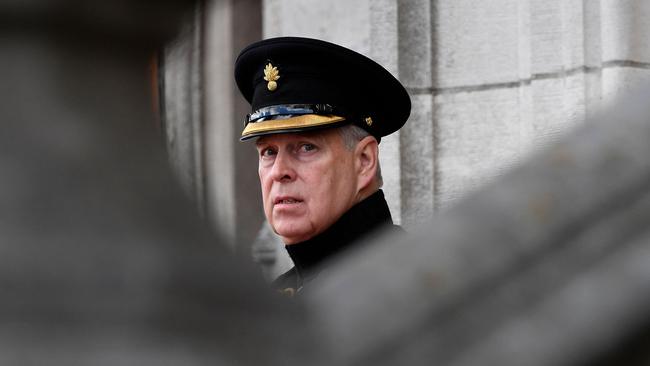
It is enough to make even Prince Andrew sweat. After weeks of appearing to dodge the case that just will not go away, lawyers representing the man who has barely perspired since the Falklands conflict have finally accepted that he has been officially notified of the lawsuit alleging that he sexually abused Virginia Giuffre when she was 17.
In one corner there is David Boies, the ferocious 80-year-old litigator with a fearsome reputation who is representing Giuffre. In the other, Andrew Brettler, the Hollywood lawyer and rising star who was recently drafted in to lend some American legal muscle to Prince Andrew’s embattled lawyers.
The shadow boxing between the two led to the unedifying spectacle of legal documents being emailed, posted, couriered and even dropped off with a policeman at the gates of Windsor Royal Lodge while the ninth in line to the throne hunkered down in Balmoral.
Theatrics, perhaps, but the clock is now ticking. Like it or not, the American wheels of justice are in motion. Prince Andrew now has 21 days – or more, if a deadline extension is agreed – to decide his next move.
So what are his options?
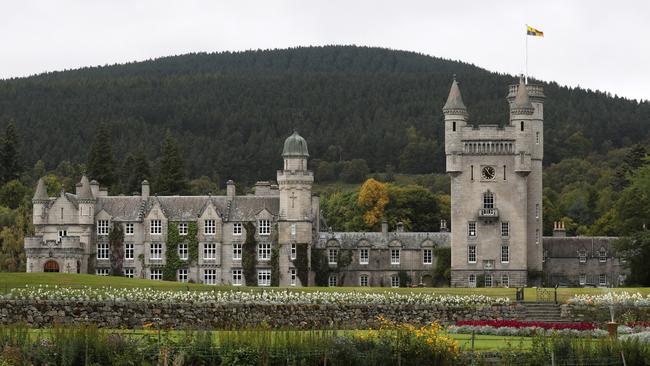
FIRST SCENARIO
The first is to continue what appears to have been his preferred strategy so far: to hide.
While the “zero co-operation” strategy made for terrible PR, conjuring the image of a cowardly prince fleeing to the Highlands to hide behind his mother’s sensible, tweedy skirts, there is a legal reasoning for holding his nerve.
The prince has not been charged with any criminal offence. It is not for the US District Judge Lewis Kaplan to decide whether he is innocent or guilty of the allegations. Rather, Giuffre wants the federal judge and jury to hear her claims and decide whether the prince should be liable to pay her damages, and if so how much.
To recap, she has accused the duke of forcing her to have sex at the London home of his friend Ghislaine Maxwell when she was 17.
She also said he abused her at around the same time in the Manhattan mansion of his late friend the sex offender Jeffrey Epstein, and on Epstein’s private island in the US Virgin Islands.
Prince Andrew engaged in these sexual acts without her consent, knowing how old she was and knowing “that she was a sex-trafficking victim”, she claims.
Andrew has denied all Giuffre’s claims, saying he does not recall ever meeting her. If he had hoped the scandal would go away, he couldn’t have been more wrong.
Giuffre, now 38, is seeking damages for “significant emotional and psychological distress and harm”.
“In this country no person, whether president or prince, is above the law, and no person, no matter how powerless or vulnerable, can be deprived of the law’s protection,” court documents read. “Twenty years ago Prince Andrew’s wealth, power, position, and connections enabled him to abuse a frightened, vulnerable child with no one there to protect her. It is long past the time for him to be held to account.”
Prince Andrew has previously said he was unaware of a warrant for Epstein’s arrest when he invited him to his daughter Beatrice’s 18th birthday party at Windsor Castle in 2006. (Other guests included Harvey Weinstein, whose wife designed the birthday girl’s dress.)
Epstein was arrested days after the party, but Andrew continued to visit the registered sex offender after he was released from prison for a prostitution offence involving a minor.
Disgraced financier Epstein killed himself in jail in August 2019 while he was awaiting trial on sex trafficking charges. Maxwell, meanwhile, will stand trial in November for allegedly recruiting and grooming underage girls for Epstein to abuse.
Andrew has previously confirmed that he had been on Epstein’s private plane, stayed at his private island and stayed at his homes in Palm Beach, Florida, and New York, but says the alleged incidents “never happened”. His biggest mistake, he famously told Emily Maitlis, was simply being “too honourable”.
Now the court case his lawyers had tried so desperately to delay has finally begun. Of the remaining options left open to the duke, even his most loyal supporters would have to admit, none is good. If he continues with “zero co-operation”, refusing to participate in the lawsuit or submit a defence, he risks a default judgment.
Should the US court rule in Giuffre’s favour, her lawyers would then have to come to the UK to ask a High Court judge in London to enforce the ruling here. By following this strategy, the prince might be hoping that a London judge would reject the case as unenforceable because he did not take part. He wouldn’t be able to clear his name, but he could avoid paying up.
Zero co-operation might have been his British team’s preferred strategy up until this week, but its usefulness evaporated the moment those court papers made it to Brettler’s desk in Los Angeles, according to Bradley Simon, a former federal prosecutor in New York who now works as a defence attorney specialising in complex civil litigation.
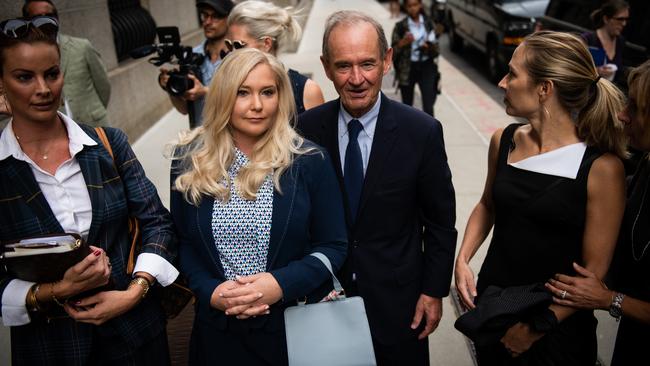
Accepting service of the papers, Simon says, means the duke now has skin in the game. Like it or not, he is already participating. “There would have to be a very compelling reason why the British court would not enforce [a US ruling]. Maybe sovereign immunity or something like that. I think that’s unlikely,” says Simon, a partner at Windels Marx. “I think it would look quite bad for a prince in the UK to thumb his nose at court proceedings in the US.”
“It’s almost never a good idea not to show up,” Boies told The Times Magazine at the weekend, with the kind of glee one might expect from a veteran litigator who has seen Prince Andrew’s Newsnight interview. “It’s easier to win a game if you’re there returning the ball.”
SECOND SCENARIO
Which brings us to the second option, one that Simon suggests should probably have been done a long time ago: negotiating a settlement with his accuser.
“In light of his position, probably the best thing here would be a settlement to resolve it. That would probably be his most prudent course, I would think. A good course would have been to try to resolve this early on,” he says. Why does he think it wasn’t pursued earlier? “He may have received bad legal advice.”
One thought from Simon might reassure the duke. “I think it’s pretty unlikely the FBI will bring criminal charges against him. Because of who he is and the international implications of dragging out the extradition of a prince and then, assuming he is extradited, putting him in handcuffs . . . I think they would avoid that.”
A prospect possibly even less appealing to Prince Andrew than an evening at Pizza Express in Woking. So, there’s that.
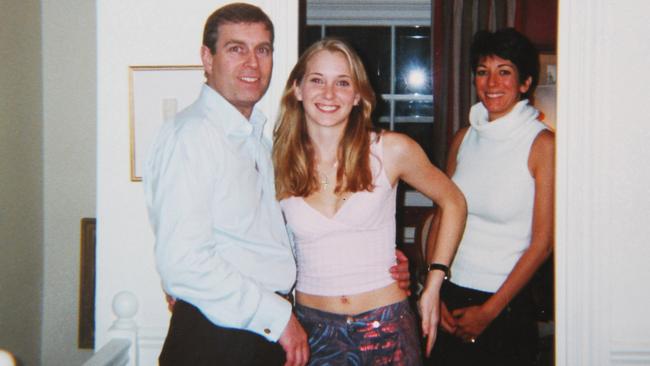
THIRD SCENARIO
Which leaves the riskiest option of them all – and the one that sources close to the duke suggest he’s now going to pursue: to come out fighting.
A change of tactics seems almost inevitable as the baton is handed from the duke’s British legal team to his American representatives at Brettler’s firm, Lavely and Singer, in Los Angeles.
A source close to the duke said: “By launching this civil case, Mrs Giuffre has actively invited legal scrutiny of her own version of events. This provides an opportunity for the duke’s team to properly scrutinise the multiple inconsistencies in her narrative that have emerged over the years, and you can expect to see a rigorous defence of all her allegations.”
Another source with knowledge of the proceedings said: “The decision to bring in high-profile US lawyer Andrew Brettler to fight the civil case marks a significant turning point in approach, and the US team will be looking to robustly engage and challenge the claims from Mrs Giuffre in a bid to provide the duke with a platform to finally clear his name. They will be looking to examine and dismantle the claims one by one.”
Mark Stephens, a partner at Howard Kennedy, a London law firm, said: “Andrew may well be emboldened by the experience of Alan Dershowitz,” referring to the Harvard law professor and household name in the US who has defended clients such as OJ Simpson, Weinstein and Donald Trump. He and Giuffre have been locked in a long-running legal battle after she maintained she was forced to have sex with him as part of Epstein’s sex-trafficking ring. He has denied the claims, calling her a serial liar, and Giuffre has since dropped her lawsuit against him.
Dershowitz’s aggressive defence may tempt the duke to “think to himself that he should defend the Giuffre claim”, Stephens said. “It would be a risky strategy, but everything about this case is risky.”
Central to any challenge is likely to be the issue of a confidential out-of-court settlement made between Giuffre and Epstein in 2009. The sealed documents are said to include a commitment from her not to bring further claims against others in Epstein’s circle, potentially opening up the way for Andrew’s lawyers to argue that the case should be thrown out.
Her claim against Dershowitz was reportedly dismissed on similar grounds, and Dershowitz has argued that unsealing those documents could help to nullify the lawsuit against Prince Andrew too.
It could be at least two years before the main claims of the case are heard before a jury. Even if it does get to that stage, it is likely that every option would be exhausted before Prince Andrew took the stand.
Most of the royal family have managed to avoid appearing in court – with the notable exception of Queen Victoria’s son and heir, Bertie. When the future Edward VII gave evidence in a civil case, in which he denied having an affair with a woman whose husband was trying to divorce her for multiple adultery, it was the first time a royal had been summoned to court in centuries.
Not since 1891, when Bertie appeared a second time to give evidence in a card cheating scandal involving an illegal game of baccarat in Hull, has the private life of a prince been scrutinised in court.
Amber Melville-Brown, a partner and global head of media who is based at the New York office of Withers, a London law firm, said: “There is some irony when the English court has recently ruled that the will of HRH Prince Philip should be sealed to protect the dignity of Her Majesty the Queen that that very dignity appears under attack from within her own family.

“On the one hand, by her grandson Harry as he appears more than happy to talk about family matters – with chat show queen Oprah Winfrey and her millions of viewers, no less – from his new home on the other side of the Atlantic; and on the other hand, and on this side of the Atlantic, from a son who refuses to cross the Pond and whose very silence risks putting the reputation of the royal family at further risk.”
She added: “What are the options with this claim? Ignore it, fight it, admit it, settle it.
“Ignore it and optically he’s damned by his silence; contest it and face probing cross-examination; admit it – that won’t happen when he robustly denies it – or settle it and pay the price financially, and reputationally as people will assume there’s no settlement without fire.
“None are attractive options, but his lawyers may feel that the first and the last are the best of a bad lot.”
Whichever way you cut it, the outcome looks “dire”, said Nigel Cawthorne, the author of Prince Andrew: Epstein, Maxwell and the Palace. “Prince Andrew has a royal protection officer with him at all times who must log where he is and who he was with. If the records were released they would show that Andrew wasn’t at the places at the times Ms Giuffre alleges. That would blow her case out of the water.
“Andrew’s legal team can, no doubt, kick Giuffre’s civil case down the road for years, but the truck that is hurtling down the highway is the Maxwell criminal case,” he added, referring to the trial scheduled for November. “Giuffre will be on the stand. Her testimony will be broadcast worldwide and Andrew will have no forum to reply.”
The royal commentator Dickie Arbiter was similarly pessimistic. “He needs to man up and face his accuser. Until he does, the finger of suspicion will continue to point at him.
“He has stuck his head in the sand. It hasn’t worked. I do question the advice he has been given.
“He’s trying to hold his nerve, but it seems as though the other side’s nerves are a lot stronger.” Giuffre seems willing to play a very long waiting game, Arbiter said.
“There’s an old saying, ‘Tell me who your friends are and I’ll tell you who you are.’ Andrew has never been any good at picking friends and what we’re now seeing is the upshot of that. The only winners here are the lawyers.”
“There’s no way back” for the Queen’s second son, he said. “He can stay at Balmoral for as long as he likes. He’s got nothing else to do.”
The Times

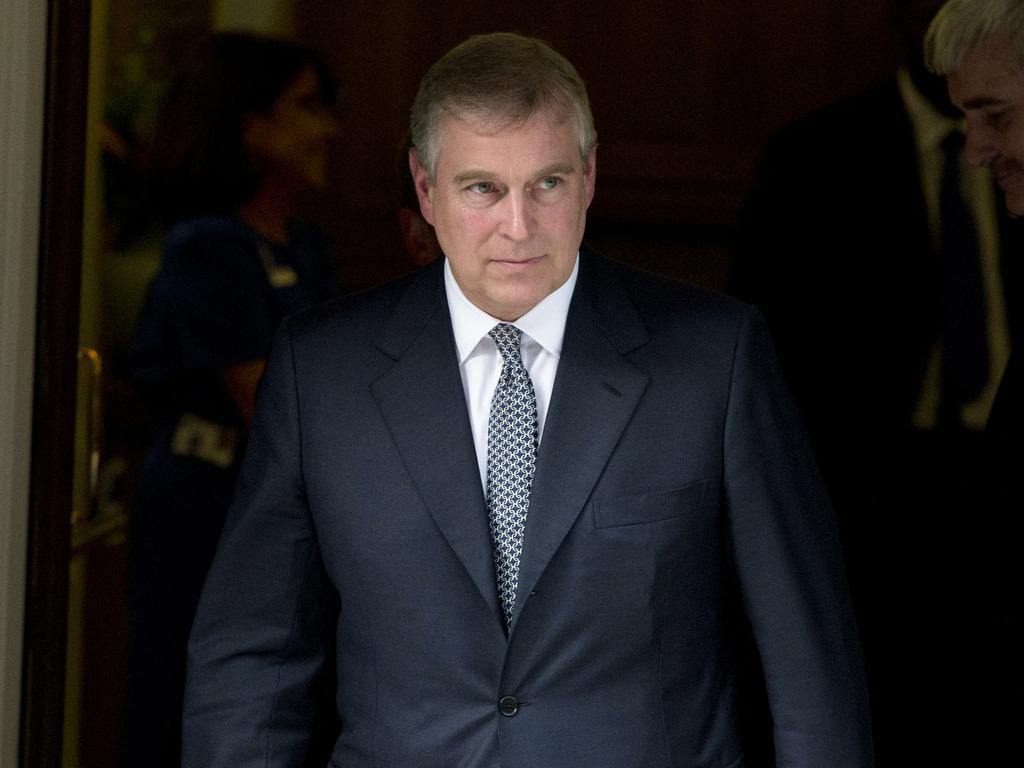

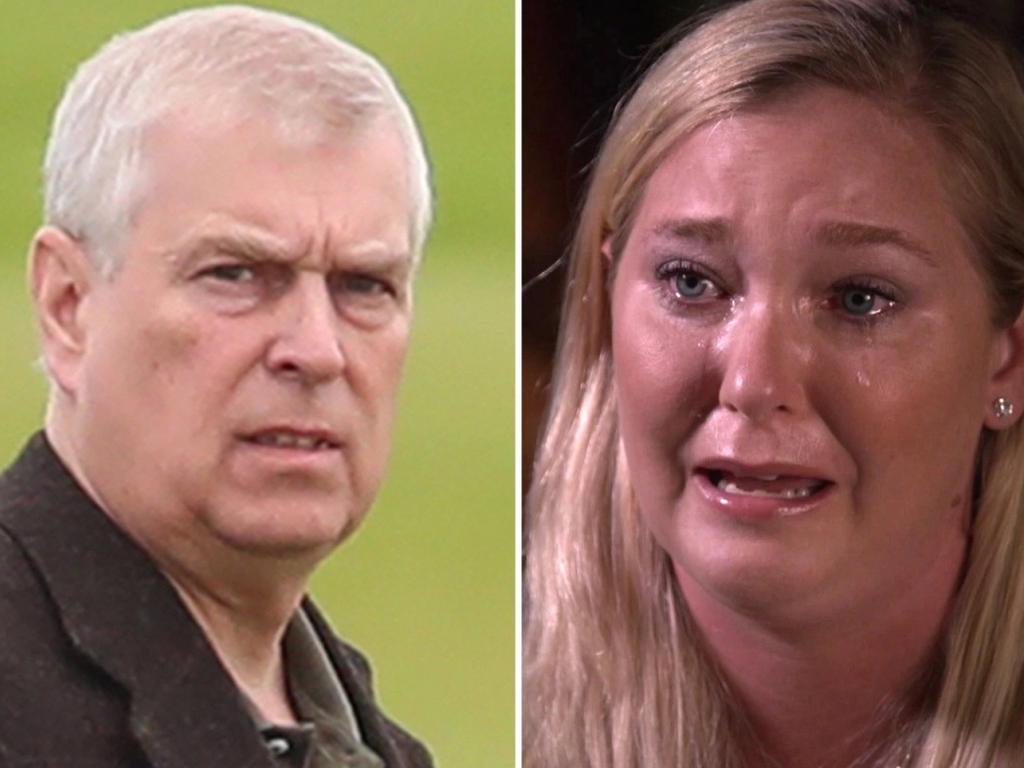

To join the conversation, please log in. Don't have an account? Register
Join the conversation, you are commenting as Logout